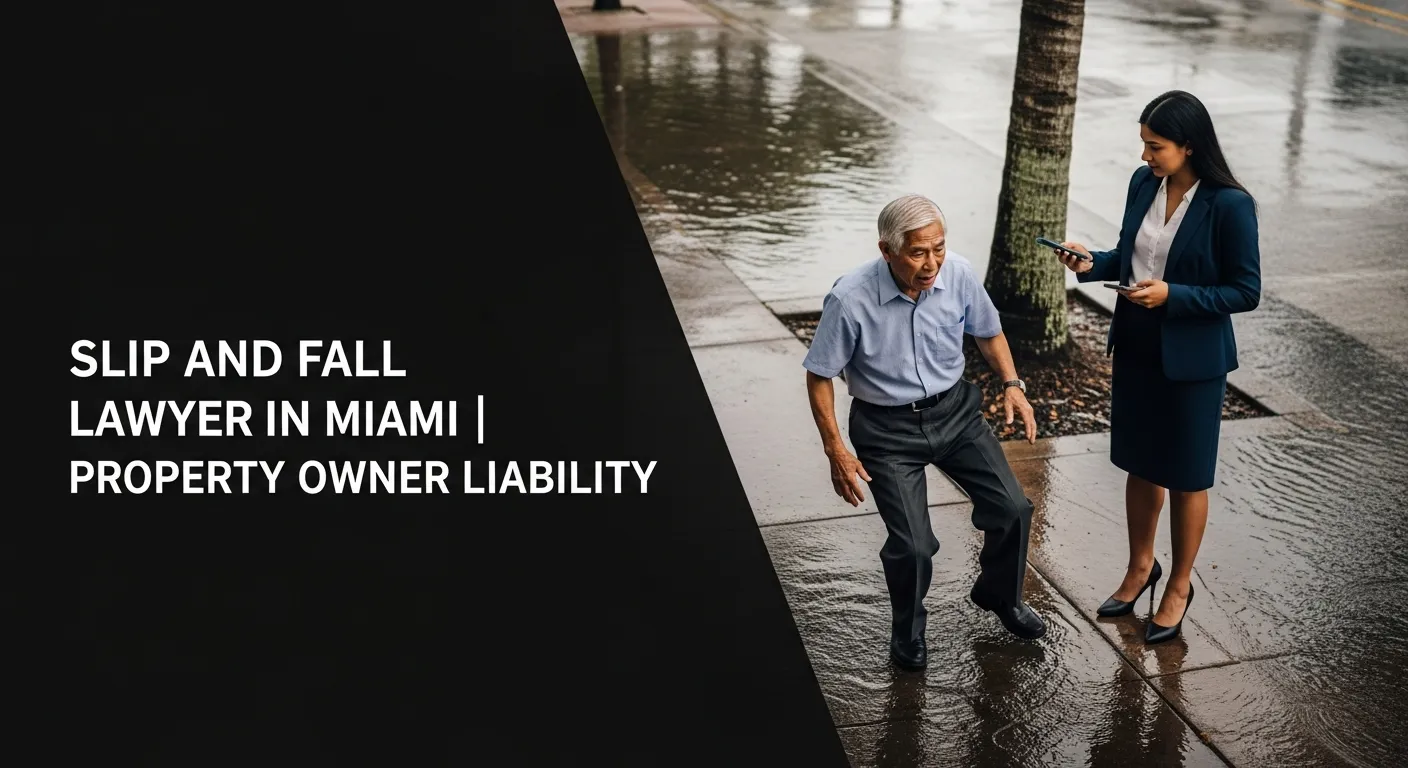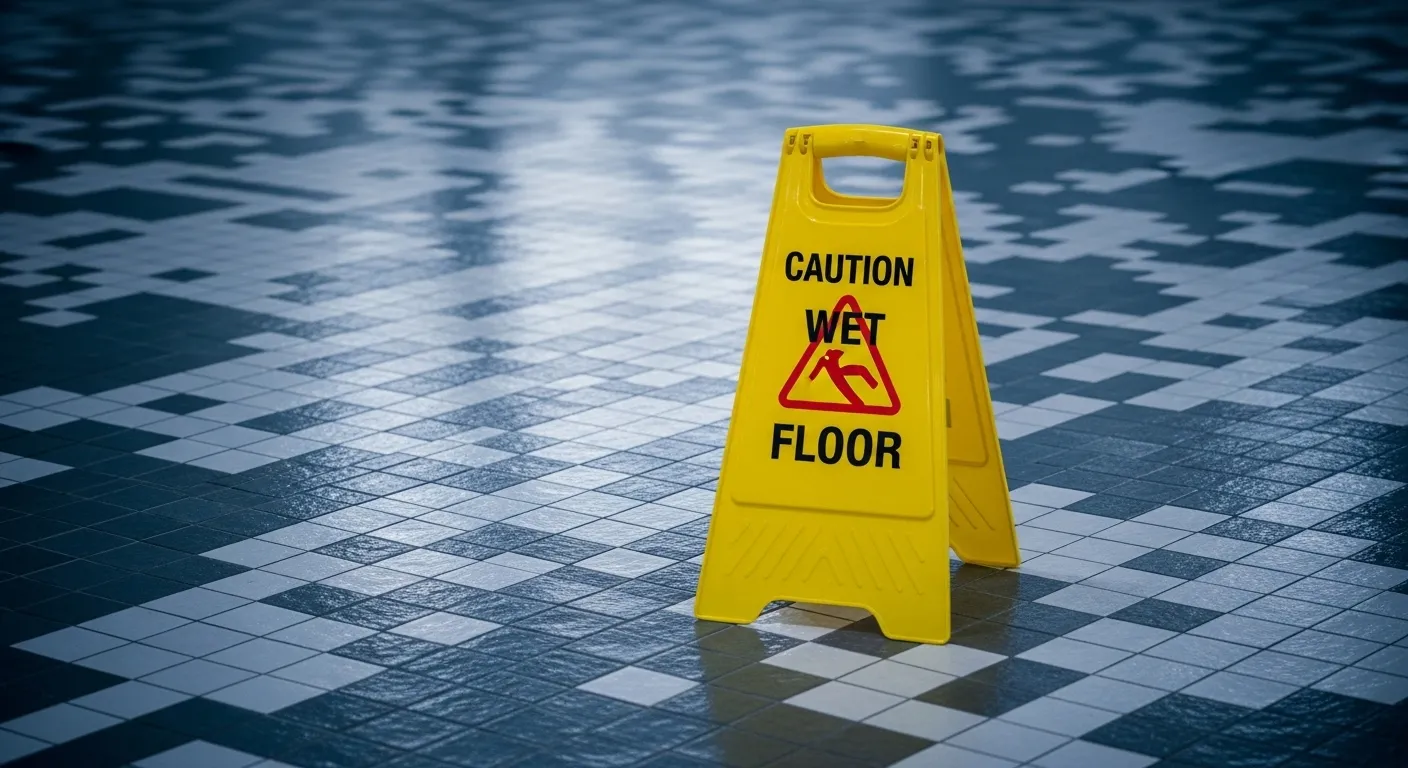Proving a Slip and Fall Case in Florida: A Guide to Premises Liability

One moment you're walking through a store, an apartment building, or a parking lot, and the next, you're on the ground in pain. A slip and fall can happen anywhere, and the resulting injuries can be surprisingly severe, leading to fractures, head trauma, and chronic pain.
Many people who suffer from slip and fall injuries wrongly blame themselves or assume it was just a clumsy accident. However, the law often sees it differently. Property owners have a legal obligation to keep their premises reasonably safe for visitors. When they fail, and you get hurt, they can be held financially responsible. This is a legal concept known as premises liability.
The Core of a Claim: The Property Owner's "Duty of Care"
Not every fall creates a valid legal claim. The foundation of any successful slip and fall case rests on proving that the property owner breached their "duty of care." This duty is the legal responsibility to act with the same level of caution that any reasonable person would in a similar situation to avoid harming others.
However, the specific duty owed to you can depend on why you were on the property. Legally, visitors are classified into three groups:
- Invitees: This is someone invited onto the property for the owner's commercial benefit, like a customer in a grocery store, a guest at a hotel, or a fan at a concert. Property owners owe invitees the highest duty of care. They must actively inspect for, repair, and warn about any hidden dangers.
- Licensees: This is a social guest, like a friend you invite over for dinner. The owner has a duty to warn a licensee of any known dangers on the property but doesn't necessarily have to look for unknown hazards.
- Trespassers: This is someone on the property without permission. Generally, owners have no duty to protect trespassers from injury, with a major exception for children who might be attracted to a hazard (like an unfenced swimming pool).
Proving Negligence: The 4 Key Elements
To win a premises liability case, you and your attorney must prove four specific elements to show the property owner was negligent:
- A Dangerous Condition Existed: First, you must show that a hazardous condition on the property caused your fall. This could be a wet floor, a broken handrail, or a poorly lit staircase.
- The Owner Knew or *Should Have Known* About It: This is the most challenging part to prove. You must demonstrate that the owner either created the condition, knew about it and did nothing, or should have known about it through reasonable care. For example, a spilled drink should be cleaned up in a reasonable amount of time. A store can't claim ignorance if a hazard existed long enough that they should have discovered it.
- The Owner Failed to Fix or Warn About the Hazard: You must prove that the owner had an opportunity to fix the problem (e.g., mop the floor, repair the step) or warn visitors (e.g., put up a "Wet Floor" sign) but failed to do so.
- This Failure Caused Your Injuries: Finally, you must directly link the owner's negligence to the slip and fall injuries you sustained. Your medical records are critical evidence for this element.

How Property Owners Fight Back
Property owners and their insurance companies will not simply accept blame. They often use two common legal defenses to try and avoid paying for your slip and fall injuries:
- The "Open and Obvious" Defense: They will argue that the hazard was so obvious that a reasonably careful person would have seen and avoided it. Essentially, they try to shift the blame to you for not paying attention.
- Comparative Negligence: In this defense, they'll claim you were partially responsible for the accident. For example, they might argue you were texting while walking. If successful, this can reduce the amount of compensation you receive by the percentage you are found to be at fault.
Frequently Asked Questions
How do you prove a property owner was negligent in a slip and fall case?
To prove negligence in Florida, you must show the property owner knew or should have known about a dangerous condition (like a spill or broken step) and failed to repair or warn about it in a reasonable amount of time. Evidence like photos, incident reports, and witness statements are critical.
What is the 'open and obvious' defense in a Miami slip and fall claim?
The 'open and obvious' defense is an argument made by the property owner that the hazard was so apparent that a reasonably attentive person would have seen and avoided it. Essentially, they attempt to shift the blame for the accident onto the victim for not paying attention.
Injured in a Fall? Don't Assume It Was Your Fault.
Proving a premises liability claim is complex and requires immediate investigation. Let our experienced slip and fall lawyers evaluate your case, preserve the evidence, and fight the insurance companies for the full compensation you deserve.
Get a Free Case Evaluation from Our Miami Team →You Pay Nothing Unless We Win Your Case.